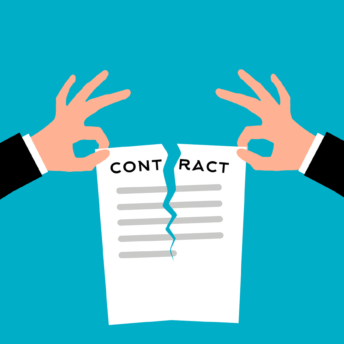There can be no underestimating the importance of contracts between individuals and companies. They form the basis of most interaction between the relevant parties and cover many different aspects of business.
A binding contract exists in law when an offer made by one party is accepted by another, including an agreement that both will benefit from it. However, a breach of contract can occur if the binding agreement is not honoured by one or more of the parties involved. In the course of business, some aspects of the contract may need to be changed and in this article, how to add a clause to a contract, we take a look at the process and mechanism involved.
Free Initial Telephone Discussion
For a free initial discussion on how we can help you make changes to your contract, get in touch with us today. We will review your situation and discuss the process involved in a clear and approachable manner. Early expert legal assistance can help you avoid making mistakes, saving you money and also avoiding the stress of dealing with these issues on your own. Simply call us on 0345 901 0445 or complete our online enquiry form and a member of the team will get back to you.
What is variation of a contract?
Contract variation occurs when the parties agree to do something different from what was originally agreed in the contract. The rest of the terms of the contract will remain the same.
What is the process involved?
The process involved in varying a specific term of a contract will usually follow the same mechanism as the drafting of the original contract. Therefore, this can take place if there is a formal written amendment to the contract setting out the terms of the variation agreed by the parties. The variation could also be agreed by an oral agreement or by the conduct of the parties.
The specific means of variation will depend upon how the original contract was drafted. Consequently, if the contract was formally drafted in written form, variations to this contract must also be in a written form. There may also be provisions in the contract that state variations can only be in written form.
The parties must usually mutually agree to alter or modify the contract. In some circumstances, the underlying contract might give one party a unilateral right to make certain limited changes, but agreement is normally necessary.
The parties must intend the alteration/modification permanently to affect their rights. If there is no such intention, then the change is likely to amount only to a temporary forbearance or concession, rather than a permanent variation of the contract.
The parties must comply with any requirements as to the terms of the variation.
The agreement to vary a contract will need to be supported by consideration i.e. something of value must be given in exchange for the alteration. If there is no such consideration, then the variation will need to be affected by deed.
In the event of a dispute as to whether parties have reached a valid agreement to vary their contract, the court will determine the issue by considering the relevant facts in light of the usual rules of contractual interpretation.
Is there anything else to consider?
It is important to be mindful of variations of a contract that occur by conduct of the parties. A written variation is specific and quantifiable and an orally agreed variation, although open to greater disagreement than a written variation, is also measurable. If variation by conduct is to be relied upon, the party arguing that the contract has been varied will need to show that there has been a clear pattern of behaviour that is inconsistent with the terms of the original contract, and consistent only with the parties having agreed to vary those terms. Showing that a contract has been varied by conduct can be problematic, and as such, it is advisable to detail the variation in writing wherever possible.
Indeed, some contracts will have a specific clause that states variation can occur but only if agreed in writing. The intention of this is to ensure ambiguity in the agreement is minimised.
How we can help
We have a proven track-record of dealing with commercial contracts. We will guide you through the process and ensure all checks are carried out swiftly and efficiently and we firmly believe that with the right solicitors by your side, the entire process will seem more manageable and far less daunting.
How to Contact our Corporate Solicitors
It is important for you to be well informed about the issues and obstacles you are facing. However, expert legal support is crucial in terms of reducing risk, saving you money and ensuring you achieve a positive outcome.
To speak to our Corporate solicitors today, simply call us on 0345 901 0445, or allow a member of the team to get back to you by filling in our online enquiry form. We are well known across the country and can assist wherever you are based. We also have offices based in Cheshire and London.






Leave a Reply
You must be logged in to post a comment.